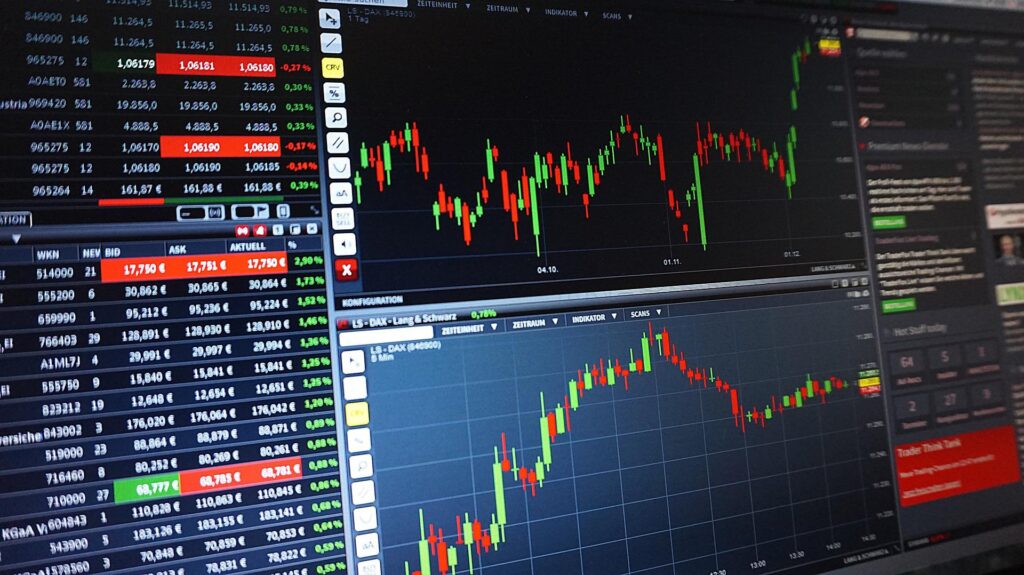The Psychology of Forex Trading Explained

At its core, forex trading is a relatively functional pastime, and one that requires to engage in variable levels of analysis and market interrogation.
However, aside from the broad depth of knowledge and skill that’s required to trade forex successfully (just 30% of all forex traders are profitable), investors also need to enter the market with the right mindset.
In this article, we’ll explore the psychology of trading while appraising the different emotions that can impact your experience as a trade.
Sentiment vs. Market Fundamentals
The value of forex currency pairs is influenced by a wide range of factors, most of which are macroeconomic in nature. These include interest rates and inflation, which tend to have an inverse relationship and directly impact the value of a national currency.
As interest rates are kept low and inflation begins to soar, for example, the purchasing power of a base currency starts to depreciate. This trend was prevalent in the UK through Q1, as inflation reached 7% and the GBP/USD incurred losses.
Of course, the Bank of England (BoE) has sought to negate this issue and lower inflation by initiating five interest rate hikes since December. While this should eventually drag inflation closer to the central bank’s target of 2% and inflate the value of the pound, it also places further pressure on households and consumer spending power in the short-term.
Other important currency fundamentals include international trade numbers (referencing surpluses and deficits), so there’s a great deal of relevant datasets to collate and process if you want to successfully trade forex.
Despite this, it’s overall investor sentiment that continues to be a key driver of market performance, usually in directions that are at odds with the fundamentals.
This is just one of the reasons why so many traders struggle to record consistent profits, as investors allow their actions to be influenced by sentiment and emotions such as greed rather than identifiable trends and free forex signals.
Understanding Fear and its Impact on Trading Psychology
Ultimately, it’s the emotions of fear and greed that are key drivers of investor sentiment, while these feelings can manifest themselves in more ways than one.
To understand the broad impact of such emotions, it’s important to consider the real-time nature of the forex market and the speed with which price fluctuations take hold.
Because of this (and regardless of your wider trading strategy), you’ll often have to make quick but informed decisions, which are completely devoid of emotion or sentiment.
This requires a particular set of attributes. For example, you’ll need presence of mind and a keen sense of determinism as a trader, as this enables you to maintain awareness and control while understanding the underlying market laws that govern change.
This mindset should also be disciplined in nature, creating a scenario where you can stick to your best-laid trading plans and strategies without being distracted by sentiment or identifiable trends.
But how can fear and greed disrupt this mindset? Well, fear can manifest itself in a couple of ways when trading forex, or indeed any security on the financial market.
For example, you may become fearful or hesitant about executing a particular trade, especially in light of bad news or a wave of negative market sentiment. This can cause you to react emotionally, regardless of what insight has been generated by your technical indicators or forex signals.
This could cause you to miss out on potentially rewarding opportunities, because of a perceived threat rather than a clearly identifiable and quantifiable one.
Secondly, you may observe a rush of positive market sentiment as fellow traders look to buy, sell or liquidate assets in their drives. Over time, this can create the so-called “fear of missing out” (FOMO), which may compel you to act against your own best interests as you mindlessly follow the actions of others.
Ultimately, you’ll need to understand fear as a natural and instinctive reaction to a perceived threat, and not necessarily a trigger for immediate action until it has been measured or quantified.
Taking steps to quantify individuals triggers of fear certainly helps you to be more mindful, while returning you to a more logical state that can drive more informed trading decisions.
How to Manage and Overcome Greed
Greed is another common and understandable trading emotion, with traders in the forex and stock markets well known for maintaining a winning position for too long as they look to maxmise their profits and benefit from every single uptick in value.
This is another instinctive and guttural emotion, and one that’s understandable given the desire to optimise profitability while we’re ahead and the market conditions are in our favour.
However, there’s a delicate balance to be struck here, as while an innate sense of greed can help you optimise winning positions, this must be managed and combined with discipline to ensure that it doesn’t override your common sense.
It’s also important to manage your expectations from the outset, as this enables you to create realistic profit forecasts and help identify the best exit positions for your trades.
The Last Word – How to Avoid Emotion as a Trader
The question that remains, of course, is what practical steps can you take to avoid the impact of emotional trading decisions? Here are some ideas to keep in mind:
- #1. Set Rules: Ultimately, the best way to overcome emotions and regulate your trading activity is to create rules. In the digital age, automated trading enables you to establish predetermined conditions for trades, which are based on your core market knowledge and strategies. You’ll also be able to set rational and considered ‘stop losses’, which automatically close open positions once they’ve incurred a predetermined level of loss.
- #2. Make Use of Your Demo Account: If you’re a new trader or switching to another broker, you should definitely utilise a demo account for a period of between three and six months. This allows you to gain both practical experience of the market and experiment with different strategies and trading rules, reducing emotional reliance over time and potentially helping to forge new plans that are built on insight.
- #3. Make Research a Key Watchword: While the amount of market research required will vary depending on your chosen strategy (scalpers leverage much more data than swing traders, for example), it’s crucial that you invest time into understanding the marketplace and planning each individual trade. Similarly, you’ll need to continually follow the latest news and market analysis, as you look to create a logical consensus for decisions and completely eliminate the role of emotion in decision making!





